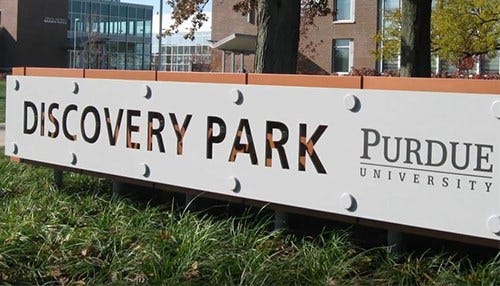$9 Million Microscope to be Installed at Purdue
 The study came from the Climate Change Research Center in Purdue's Discovery Park.
The study came from the Climate Change Research Center in Purdue's Discovery Park.
Subscriber Benefit
As a subscriber you can listen to articles at work, in the car, or while you work out. Subscribe NowPurdue University, the Indiana University School of Medicine, IU Bloomington, the University of Illinois at Urbana-Champaign, Eli Lilly and Co. and the Indiana Biosciences Research Institute have collaborated to bring the latest version of a cryo-electron microscope to Indiana. The nearly $9 million machine will be housed in Purdue’s Discovery Park.
Representatives say bringing the technology to Indiana makes the state "more competitive in attracting scientists."
This will be the second cryo-electron microscope at Purdue, and the new one will be housed along with the first in Purdue’s Wayne T. and Mary T. Hockmeyer Hall of Structural Biology in Purdue’s Discovery Park.
The cryo-electron microscope allows scientists to look at how proteins and viruses are built atom by atom. According to the university, in 2017 the original developers of this technique received the Nobel Prize in chemistry for their work.
"This technology has transformed the science of structural biology. It gives us maps to the molecules of life," said Richard Kuhn, Purdue’s Trent and Judith Anderson Distinguished Professor in Science and the Krenicki Family Director of Purdue’s Institute of Inflammation, Immunology and Infectious Disease. "Scientists can then use this information to identify possible target sites for drugs, vaccines or other therapies."
To install the new microscope, Purdue must make $1 million in renovations to Hockmeyer Hall, which includes installing a stabilization platform.
The work is slated for completion in early 2020.
Both instruments are Thermo Scientific Krios Cryo Transmission Electron Microscopes manufactured by Thermo Fisher Scientific.
To learn more, click here.
